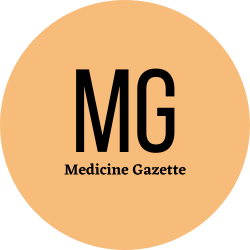Navigating the Maze of Prescription Pills Treatment: A Comprehensive Guide
by siteadmin

In today’s fast-paced world, where stressors are abundant and mental health concerns are on the rise, the utilization of prescription pills for treatment has become increasingly common. Whether it’s managing chronic pain, alleviating symptoms of depression or anxiety, or addressing sleep disorders, prescription pills play a significant role in modern healthcare. However, their usage comes with a plethora of considerations, complexities, and potential risks.
Understanding Prescription Pills Treatment
Prescription pills encompass a wide array of medications, each designed to target specific ailments or conditions. From painkillers like opioids to antidepressants, sedatives, and stimulants, these medications can offer relief and improve the quality of life for countless individuals. However, it’s essential to recognize that they are not without risks and side effects.
Risks and Considerations
While prescription pills can be highly effective when used appropriately, they also pose risks, particularly when misused or abused. Dependency, addiction, tolerance, and withdrawal symptoms are among the potential consequences associated with long-term use or misuse of certain medications. Moreover, adverse reactions, interactions with other drugs, and the risk of overdose underscore the importance of cautious and informed usage.
The Role of Healthcare Providers
Central to safe and effective prescription pill treatment is the involvement of healthcare professionals. Physicians, psychiatrists, pharmacists, and other specialists play pivotal roles in prescribing, monitoring, and adjusting medication regimens based on individual needs and responses. Open communication, thorough assessments, and regular follow-ups are essential components of this collaborative approach to care.
Holistic Approaches and Alternatives
While prescription pills can be indispensable for many individuals, they are not the only option available. Holistic approaches, including therapy, lifestyle modifications, and complementary therapies, can complement or even substitute pharmacological interventions in certain cases. Incorporating mindfulness practices, exercise routines, dietary changes, and stress-reduction techniques can contribute to overall well-being and reduce reliance on medications.
Responsible Usage and Advocacy
As consumers of healthcare services, individuals have a responsibility to educate themselves about prescription pills, their potential benefits, and risks. It’s crucial to advocate for informed consent, ask questions, and actively participate in treatment decisions. Furthermore, promoting awareness about responsible medication usage, destigmatizing mental health issues, and advocating for accessible alternatives are vital steps toward fostering a healthier, more informed society.
Prescription pills treatment is a multifaceted aspect of modern healthcare, offering relief and support to millions of individuals worldwide. However, it’s essential to approach their usage with caution, awareness, and responsibility. By understanding the risks, consulting healthcare professionals, exploring holistic alternatives, and advocating for informed decision-making, individuals can navigate the complexities of prescription pills treatment more effectively, leading to improved health outcomes and enhanced well-being for all.
In today’s fast-paced world, where stressors are abundant and mental health concerns are on the rise, the utilization of prescription pills for treatment has become increasingly common. Whether it’s managing chronic pain, alleviating symptoms of depression or anxiety, or addressing sleep disorders, prescription pills play a significant role in modern healthcare. However, their usage comes…
Recent Posts
- Ozone Therapy for Fertility
- Acupuncture for Fertility
- The Transformative Power of Movement: Embracing Physical Activity and Exercise for Health and Fitness
- Fueling Your Fitness Journey: The Power of Nutrition and Balanced Eating Habits
- House of Aesthetix Introduces Innovative Ozempic Solutions in San Diego
